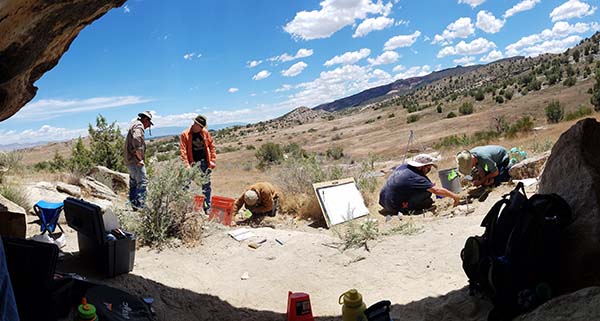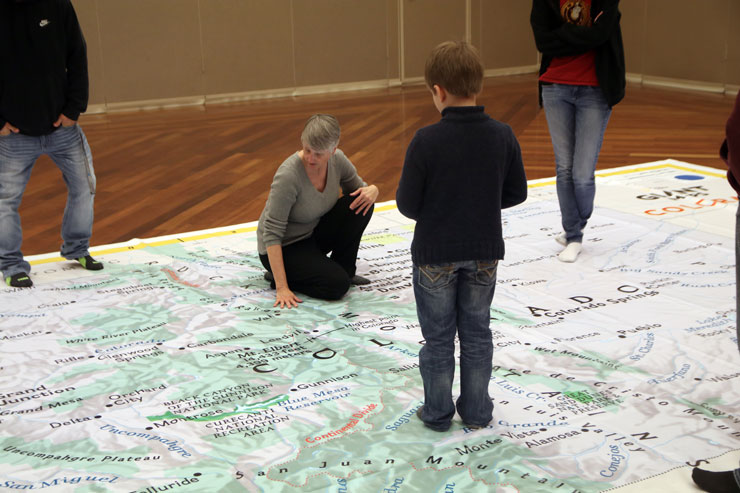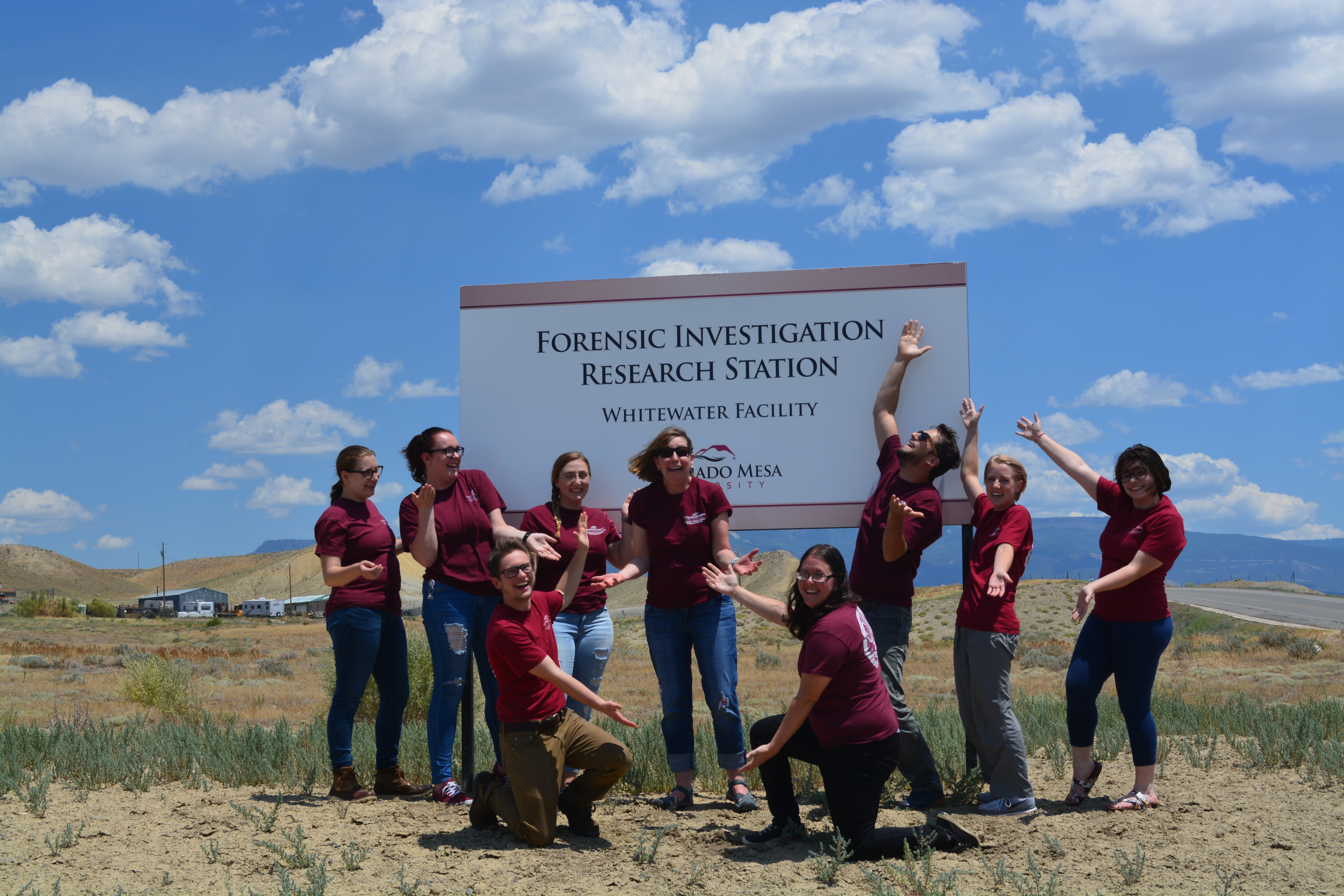The Applied Anthropology and Geography major combines academic preparation with practical skills in GIS (geographic information system), archaeology and forensic anthropology. Uniting these fields is the emphasis on spatial data, which is broadly defined to include cultural and physical landscapes as well as the human body.
Our students receive practical training in archeological, geographic and forensic anthropological field research. The biological anthropology program includes the Forensic Investigation Research Station. Geography courses provide experience using GIS to analyze datasets derived from the social sciences. The archeology program provides knowledge of regional prehistory and cultural resource/heritage management.

The inclusion of GIS sets our program apart from traditional anthropology programs. The combination of cultural resource management with GIS prepares graduates for work managing heritage resources on federal or state lands. Should students aspire to graduate education, our program will also prepare them to conduct research independently.
We offer a B.A. in Applied Geography and Anthropology and minors in Archaeology and Forensic Anthropology.

Career Opportunities
The BA in Applied Anthropology and Geography is more than another liberal arts major. It is designed to be interdisciplinary and skill-based. In particular, expertise in GIS sets the student up for a broad variety of careers in the public and private sectors in our outside of archaeology. Several recent graduates, for example, are currently employed by KAART, a local geospatial data management firm. The biological/ forensic anthropology component has been used by graduates in their work as coroners and in law enforcement, as well as those who go on to graduate school. The archaeology component is designed to give students the backgrounds they need to excel in cultural research management or in graduate studies.
Faculty
All full-time faculty hold PhDs and are active scholars and researchers, bringing their work into the classroom, and bringing the students outside the classroom into active research projects.
Christiane Baigent, PhD Southern Illinois University, Carbondale, MSc University College of London, BA Metropolitan State University of Denver. Director, Forensic Investigation Research Station, Assistant Professor of Anthropology. Research Interests: the trajectory of human decomposition at high-altitude and on the western slope of Colorado, trauma, pathology, and patterns of secular change in the skeleton, and the dynamics of cultural and biological constructions of 'self,' including biocultural concepts such as “race” (it's a cultural concept with biological consequences) and sex/gender in anthropological perspective.
Melissa Connor, BA, MA, University of Wisconsin-Madison; PhD, University of Nebraska-Lincoln. Professor of Forensic Anthropology and Director of the Forensic Investigation Research Station. Research interests: The role of exhumations in transitional justice situations, measuring post-mortem interval in desiccated remains, pedagogy combining STEM and social science fields.
Audrey Lumley-Sapanski, PhD, The Pennsylvania State University, BA, Williams College, MS, Pace University. Assistant Professor of Geography. Research interests: The impact of migration policy and governance on risks to human trafficking.
John Seebach, PhD, Southern Methodist University. Associate Professor of Archaeology. Research interests: Western Slope prehistory and the anthropology of hunter-gatherers, public archaeology in collaboration with Native American nations, cultural landscapes.
Get Involved
- We have three active clubs: the Anthropology Club, the Forensic Science Club, and the Geography Club.
- The summer archaeology field school gives students the hands-on opportunity to participate in research projects exploring the outstanding archaeology of the region.
- An internship at the Forensic Investigation Research Station give select undergraduate students a highly unusual opportunity to work with both the remains of the recent dead and modern osteological material.
- Internships in Geography provide hands-on experience in applied GIS.
- Research assistants in geography work on internationally and federally funded research projects to end human trafficking.

Graduates of this major will be able to do the following:
Apply basic research methodology sufficient to evaluate research in the discipline to include the ability to articulate the difference between qualitative and quantitative research methods, and describe and use descriptive statistics and basic analytical statistics (quantitative fluency).
Demonstrate tools to be life-long learners to include evaluation of information from other students’ research, material found on the internet, and scholarly journal articles (critical thinking).
Demonstrate the ability to create maps in a geographical information system program and do basic spatial analysis.
Demonstrate a set of tools appropriate to the sub-discipline (specialized knowledge): Archaeology students: demonstrate a basic set of field archaeological skills and Forensic Anthropology students: macerate remains and conduct a basic osteological analysis.
